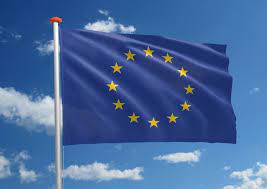On October 1, 2023, the Carbon Border Adjustment Mechanism (CBAM) entered into application in its transitional phase.
The CBAM is the EU’s tool to fight carbon leakage and is part of the Fit for 55 Agenda of the EU. The purpose is to make the price of carbon between domestic products and imports equivalent.
As of October 1, 2023, EU importers of cement, iron and steel, aluminium, fertilisers, electricity and hydrogen need to report the volume of their importations and the greenhouse gas emissions included during production.
EU importers need to collect data for the 4th quarter of 2023, reporting out for the first time by January 31, 2024. At this stage, this goes with paying financial adjustments.
The CBAM (being a WTO-compatible measure) is considered as a supporting mechanism ensuring the effectiveness of EU measures to reduce emissions.
EU importers of those goods will have to report on the volume of their imports and the greenhouse gas (GHG) emissions embedded during their production, but without paying any financial adjustment at this stage. While importers are asked to collect data for the fourth quarter of 2023, their first report will only have to be submitted by 31 January 2024. Furthermore, a number of flexibilities have been built into the CBAM’s structure for the first year of application, such as the use of default values for the reporting of embedded emissions and the possibility to use the monitoring, reporting and verification rules of the country of production.
The transitional period will be a learning period for all stakeholders (importers, producers and authorities). It will allow the European Commission to collect useful information on embedded emissions in order to refine the methodology for the definitive period, which starts in 2026. As of that date, importers will need to buy the required number of “CBAM certificates” corresponding to the greenhouse gases included in CBAM goods imported into the EU.
To assist EU importers with the implementation of these rules, a new CBAM transitional register is available as of 1 October 2023, to help importers perform and report these calculations. The Commission is also gradually making available detailed written guidance, online training materials and webinars, sector-specific factsheets and a step-by-step checklist to support businesses as the transitional mechanism begins.


